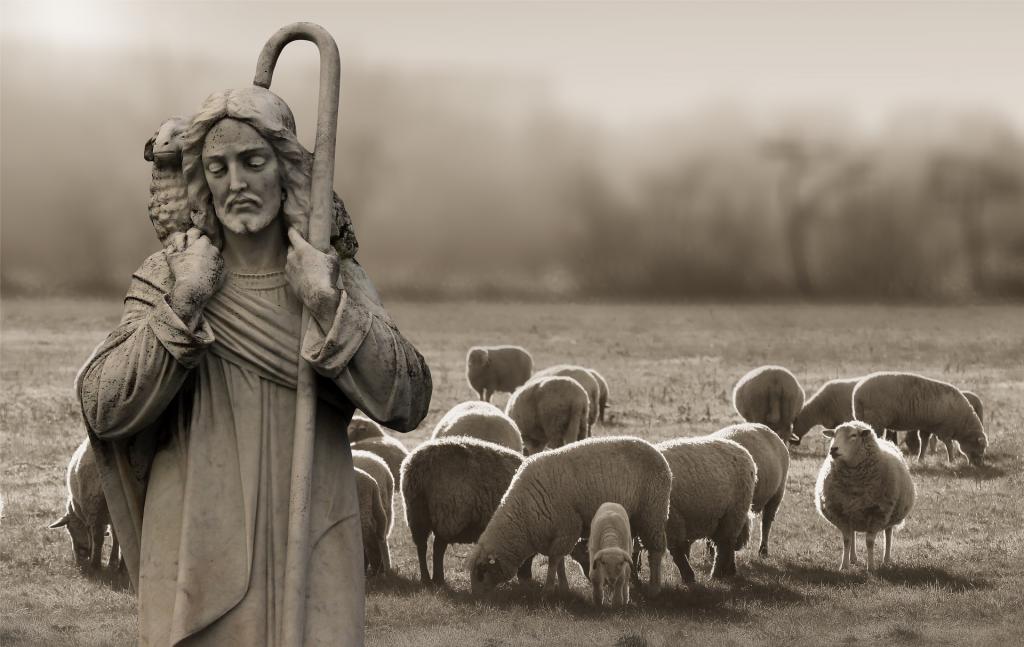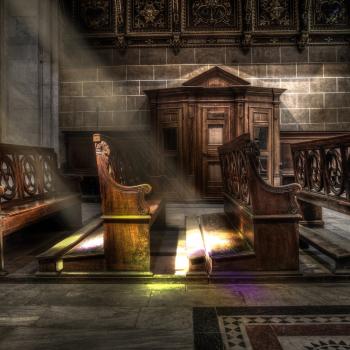
What has been will be again,
what has been done will be done again;
there is nothing new under the sun. – Ecclesiastes 1:9
I was eighteen the first time I faced a predator inside the church. He was old enough to be my father, and everyone in our church knew he had problems.
When I didn’t give him the attention he wanted, he started stalking me. He terrorized my family for months, breaking into our home, starting a fire, and leaving death threats.
But this post isn’t about him. This post is about why I left the church.
Even when I was younger, and much more sheltered, I knew sometimes wolves got to the sheep. That wasn’t world-shattering news. People do evil things sometimes. That’s how the world is.
But I didn’t know how often shepherds let the wolves wander freely, eating as many sheep as they like.
I could understand how one man would do evil things.
I couldn’t wrap my mind around our church’s reaction, though.
The church council wanted to handle it all internally. As an adult, I understand that was so they could protect their good name in the community and with the regional conference.
But they didn’t handle it at all. What they really wanted was for me to stay quiet because that was easier. This man wasn’t asked to leave the church. He wasn’t held accountable in any way.
Men in leadership roles—men I looked up to and learned from—protected the man who was threatening to murder me for not fulfilling his fantasies.
And then there were all the people sitting in the pews. People who knew about what was happening, and could have put pressure on the church, but did nothing.
When people say, “I was hurt by the church,” we usually jump to assumptions about people in leadership roles. But the church is more than her leaders. We’re all the church.
If a victim steps forward in your local community, what will you do?
Will you stay silent, praying for it all to go away so you don’t have to deal with it? So you won’t have to have those hard conversations with your friends? So you won’t have to look at your leaders in a different light or question them if they aren’t handling the accusations properly? So you won’t have to stand up for the victim and risk making people uncomfortable or angry?
Will you turn your back on someone who has been hurt within the church? Because when we all turn away, they’re right to say the church turned its back on them, not the other way around.
I know what it feels like to be abandoned by your church. I know what it’s like to have your love and trust betrayed like that. When you can’t trust the people who taught you everything you know about God, where does that leave you? If they were wrong about this, what else were they wrong about?
It’s a mistake to think the only problem we’re facing is the problem of predators who sneak in. It’s not just a matter of outing all the abusers. There’s a reason churches are such safe havens for them.
It’s not just a problem in hierarchical church structures either. I experienced this in a Mennonite church, which is just about as opposite as you can get from Catholicism. Over the past few weeks, I’ve seen stories come out of several different corners of the Christian world, and we’ve just scratched the surface.
It’s a systemic problem within all churches and the laity isn’t off the hook for that. You don’t have to stand up front to have influence. We have power to cause real harm.
My spiritual journey would have looked much different if I’d had the support of my church members. If even five people had stood up in that church and publicly said, “What you’re doing is wrong. We’re with her,” things could have been different.
That predator would have still been around, but I wouldn’t have been alone.
I’ve caught some grief during those long years when I refused to attend any church. I compared myself to the lost sheep once, and some Christians I was having a discussion with got super angry about it. I reminded them Jesus cared about the lost sheep. He said the shepherd would leave the 99 sheep to go after the lost one.
They thought that sounded like an irresponsible shepherd. “What about the 99 sheep? Who will keep them safe?”
Maybe stop hanging out with wolves, if that’s your concern.
Instead of shaming that person who walks away, we need to protect them and support them so they never have to walk away for their own safety.
Wolves can be tricky. I get it. Of course evil is going to try to get inside the church. Why are we surprised by that? It’s a good strategy.
Being tricked by someone who does evil doesn’t make you a bad person. That man didn’t just fool my church. Up until the time he started stalking me, he’d fooled me too. I never considered him dangerous before that. We need to set aside our pride and admit that these predators trick us sometimes. They’re usually experts at it.
We need to admit when we’ve been deceived by them instead of holding onto this pride that tells us we’d recognize evil when we saw it. Often, we don’t. That pride can paralyze us from taking action that would protect vulnerable people in our religious communities.
We can fight this evil in so many ways. We aren’t helpless just because we aren’t in official positions of power.
We fight evil when we support victims. We fight evil when we hold predators accountable. We fight evil when we don’t pressure victims to “forgive and forget,” but stand with them while they grieve and process their pain. We fight evil when we say, “I believe you,” and “That never should have happened to you,” and, “I’m so sorry.”
We fight evil when we stand up in public and say, “This is wrong,” especially if it costs us something.
We feed evil when we’re silent. When we shame victims. When we allow cover-ups to go unchallenged. When we drive victims out of our churches to maintain the status quo.
This is going to be a long battle. If we’re committed to it, we might be risking some of our relationships with people who aren’t willing to do what’s right.
But hasn’t that always been the risk of following Jesus?
This is too important for anyone to be sitting on the sidelines. We all have our roles to play and our sides to choose. Do we side with evil because it requires less of us? Or do we side with Jesus and those who are suffering in his church?












